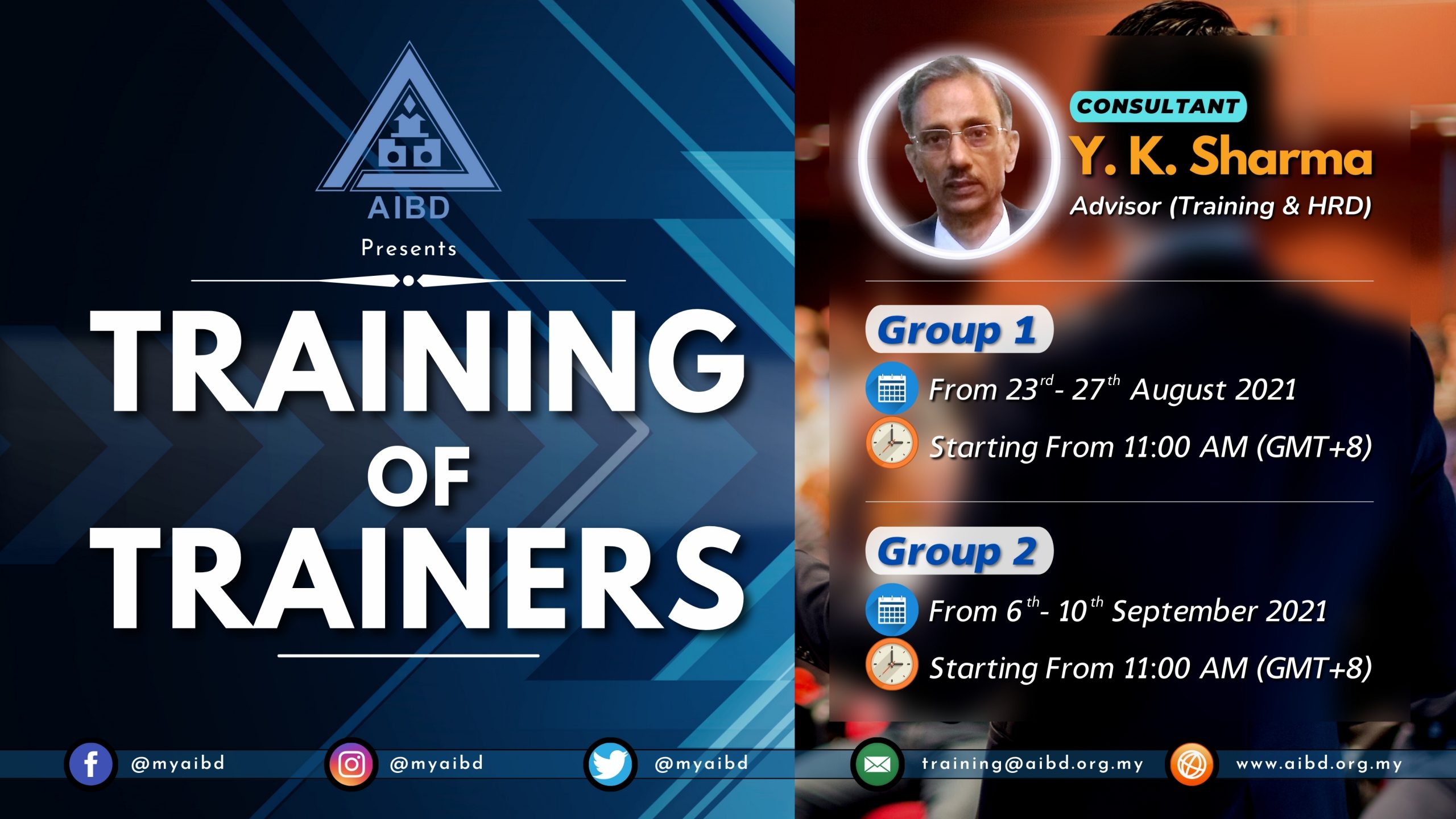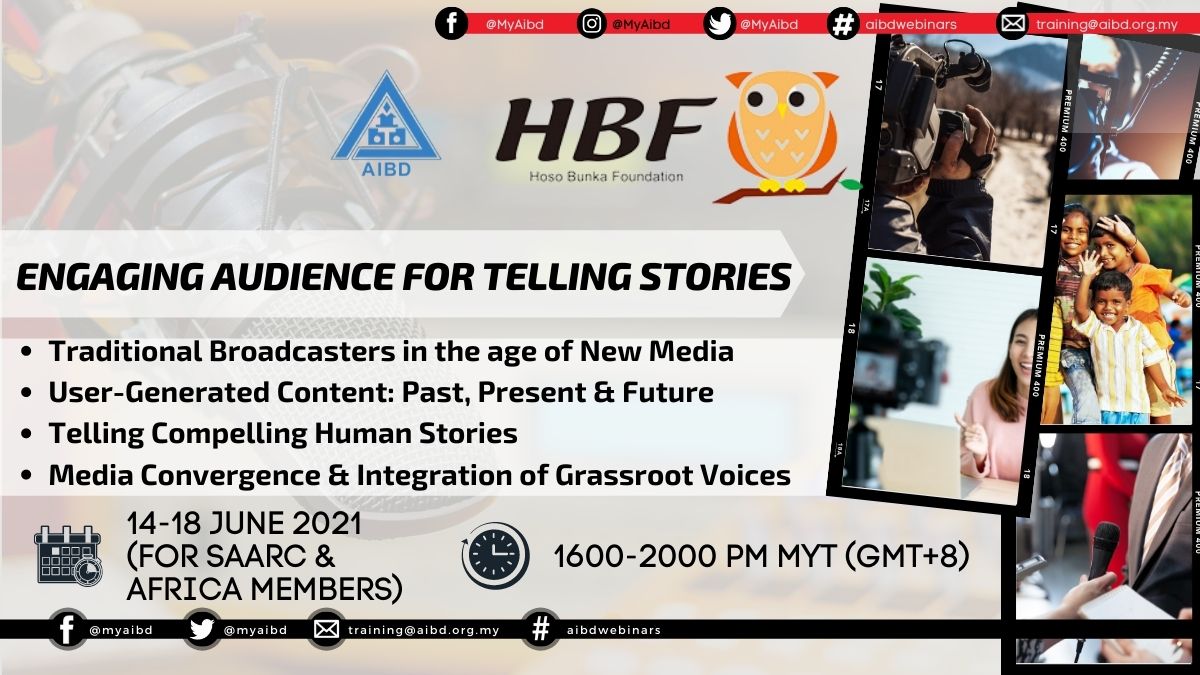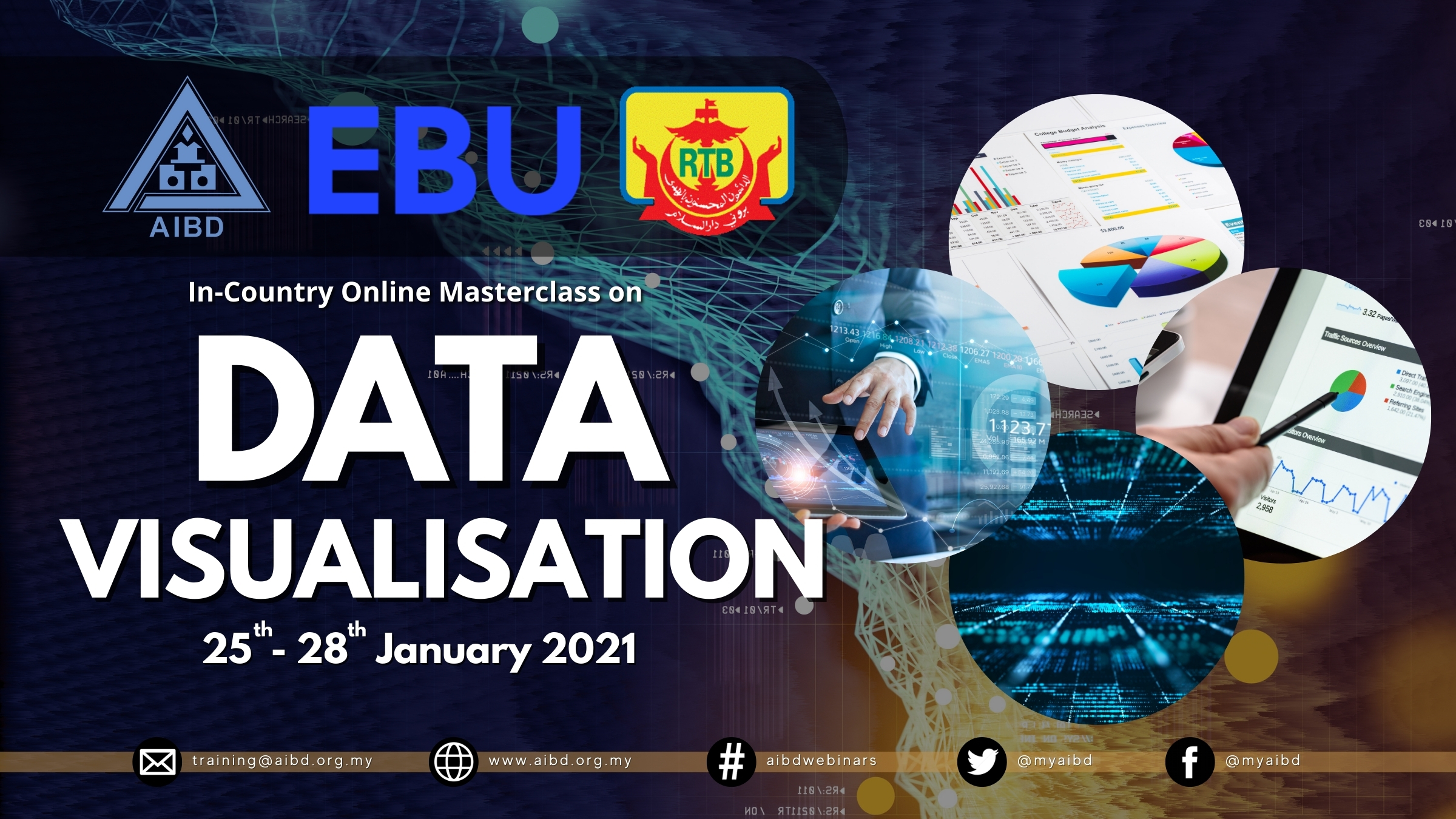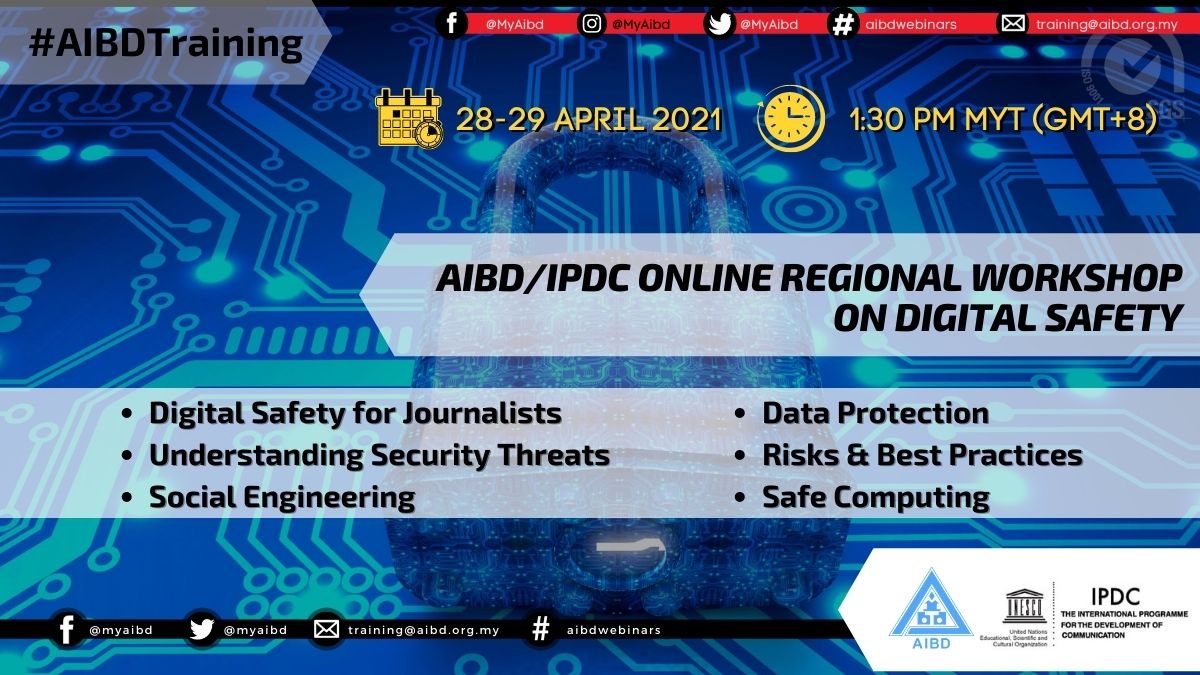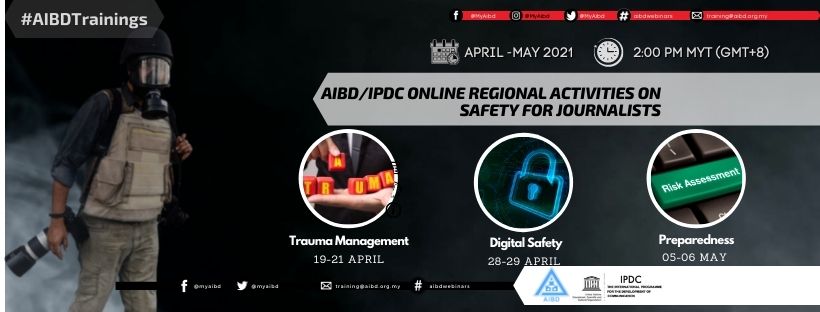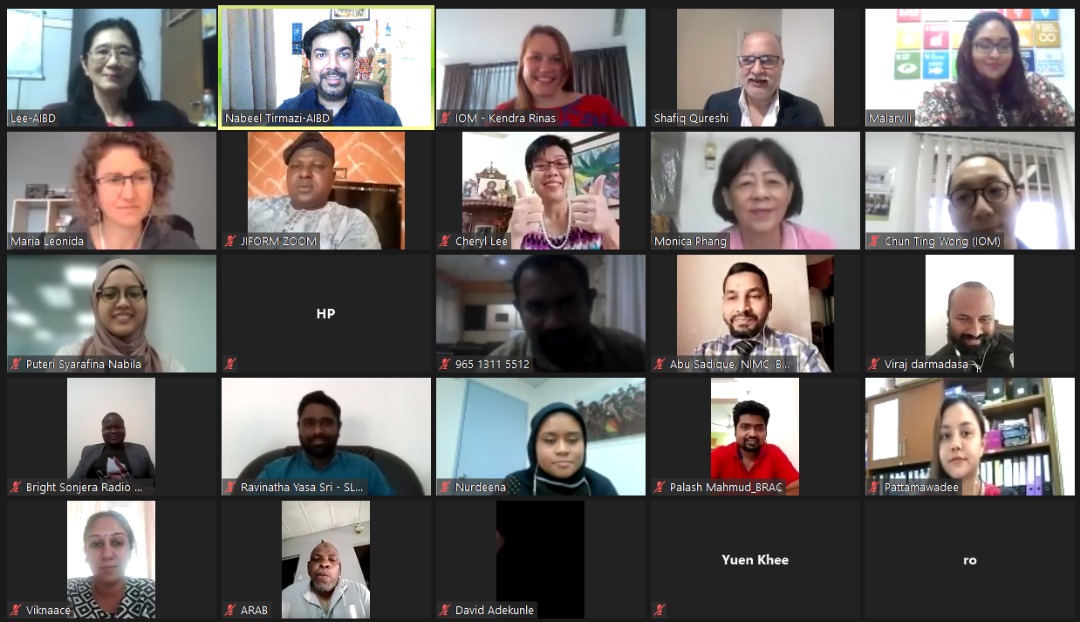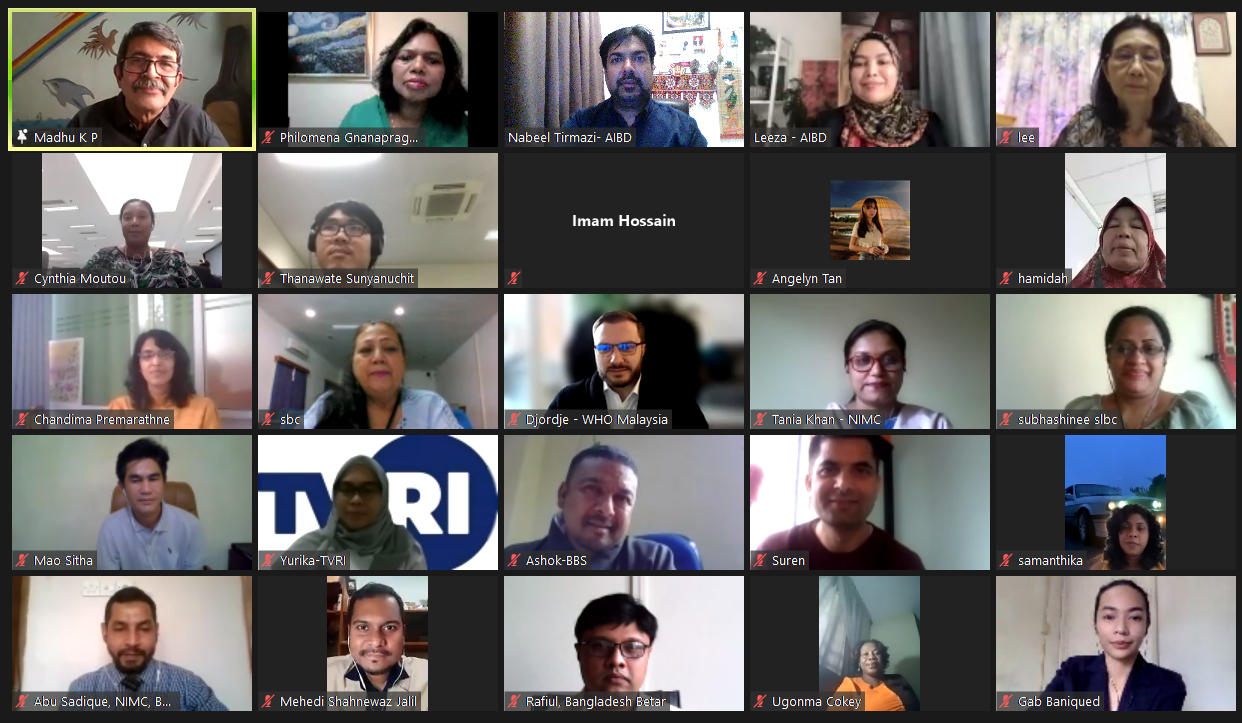Background
COVID pandemic has changed the world, impacting populations, businesses and organizations all over the world. To meet the challenges posed by pandemic, response plan have included the need for social distancing, staggered work shifts, downsizing operations, delivering services remotely and other exposure-reducing measures like minimizing contact among workers, clients and customers by replacing face-to-face meetings with virtual meetings and implementing telework/WFH wherever feasible. Media organizations in particular have felt the impact of these measures more severely and are finding ways and means to equip their employees with capabilities to meet these challenges successfully. In this context, Training and Development of human resources of the Media organizations, following due safety measures, assumes importance. Here, solutions like virtual/online trainings are becoming the new norm for training delivery. AIBD also has initiated many of its activities in virtual mode. For the online instructor led trainings, the Training of Trainers (ToT) first to enable them to deliver trainings remotely/on-line, as per new norms is becoming necessary.
Aim
For the trainers to be effective and efficient in discharge of their job function, firstly they need to have sound domain knowledge in their respective job discipline. Secondly, they need to have good communication & training skills and now additionally they need the skills in new virtual/on-line training techniques.
This workshop aims at providing the professional staff of broadcasting organizations with the knowledge and skills they need to plan and carry out effective training and implement core competency development programmes in their organizations in the present scenario. The workshop follows Systematic approach to training covering Training Needs analysis, Instructional Design, Training Techniques, the Principles of Adult Learning and their application as well as Training Evaluation with focus on virtual training techniques. It is about how to plan, deliver and evaluate structured training programmes in-person or through virtual mode, but does not focus on specific skills or job practices in broadcasting/media organizations.
Objectives
At the end of the workshop, participants will be able to:
- Plan, organize, monitor and evaluate structured training programmes for the employees of their organizations;
- Conduct training sessions/online training sessions using practical projects to transfer knowledge and skills;
- Apply the principles of adult learning in core competency development programmes using a variety of training methodologies to make trainings learner centered; and
- Contribute effectively to their departments by planning and managing in-service training programmes that bring about positive change in their organizations.
Content
Content covered in the training programme include:
- Aims of training & Role of a trainer
- Principles of Adult Learning and enhancing learner motivation
- Job Analysis
- Training Needs Analysis and Performance discrepancies
- Domains of learning
- Training objectives
- Designing instructions
- Session preparation and Training Aids
- Online training & virtual Training Technologies and techniques
- Evaluation of training—formative and summative evaluations
On-line training Structure
- This Training of Trainers (ToT) workshop, though best delivered as Face-to-Face training, is being organized in on-line training mode with interactive training sessions, practical projects and presentations by participants with keen on-line involvement.
- The training will be organized through virtual mode (like Zoom platform) requiring Audio-Video streaming facility with good Broadband connectivity.
Profile of Participant
- Professional staff like Senior Managers from Programming/ Engineering/News wings, Producers/Broadcasting Consultants from Media organizations of Asia Pacific region intending to acquire knowledge and skills for planning and carrying out effective training for the staff working in their organizations.
- Equipped with requisite facilities for participation in 5 day dedicated on-line training.
- Ability to understand, speak and write in English fluently.
Training of Trainers Online Workshop
Background COVID pandemic has changed the world, impacting populations, businesses and
Sub-Regional Workshop on Engaging Audience to Tell Stories
AIBD in collaboration with Hoso Bunka Foundation, Japan has organised
Going Beyond What It Takes To Be Sustainable In The Pandemic
By: Lee Lai Mee, Session Manager/CCO The content industry was affected
Making Data Meaningful and Understandable for the Audiences.
AIBD/ EBU/ RTB Online Masterclass on Data Visualisation 25 – 28th
Regional Workshop on Digital Safety for Journalists
Journalists face an increasing challenge to secure their communications in
AIBD/IPDC Regional Workshop on Trauma Management
The AIBD/UNESCO IPDC Regional Online Workshop on Trauma Management was
Writing Children’s Scripts that Build Resilience in Children
By: Lee Lai Mee, CCO About 19 participants from 10 countries
Media needs to speak inclusiveness to over come COVID’S health & economic impact.
The International Organisation for Migration (IOM) Malaysia is committed to
Conclusion of First Phase of AIBD Health Journalism Training Initiative
AIBD 1-month Online Workshop/ Mentoring Sessions for Health Journalists and
A Decade of Innovation and Disruption: Impact on Broadcasters
By Dr Amal Punchihewa Consultant and Advisor, AIBD Asia-Pacific Institute


